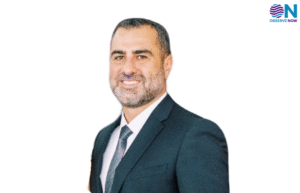In the ever-evolving landscape of business and technology, leaders are not only navigating through complexities but also pioneering transformative changes. Saurabh Chandra, Managing Director at Boston Consulting Group (BCG), stands as a beacon of such leadership.
In this exclusive interview with ObserveNow, we delve into pivotal moments that shaped Saurabh’s career and discover the power of cross-industry expertise, and explore the future trajectory of emerging technologies like AI, ML, and GenAI in BFSI and Retail. Also, Saurabh elucidated the importance of data engineering as global data creation is projected to grow to more than 180 zettabytes by 2025, up from 64.2 zettabytes in 2020 (According to a report by Mckinsey Digital).
Additionally, the conversation unfolded the fusion of innovation in EVs, Robotics, and Sensors. Here is the edited excerpt:
Can you share a pivotal moment or project in your 22+ years of experience that significantly shaped your career?
There will be multiple indeed. Firstly, while founding my company, we started with six co-founders and finally were left with two. This taught me that the most important virtue is not intelligence and skills but rather resilience. Second, I have changed domains in my career, especially every time when I am acknowledged for my work and expertise in that domain, and changing them can be equally risky in the professional world. The learning while doing so was that there’s no easy way to move out of your comfort zone, be curious, be relevant & keep learning continually. Being a student post you have become a master is easier said than done & than living through it. Third one, when I picked up B2B sales that too in the premium knowledge economy sector, then how to be an empathetic, authentic & trusted advisor towards countries’ most important CEOs’, boards, and ministries.
Being an MIT Bootcamp alumni among the top 50 founders globally, what key insights did you gain from the experience that you apply in your current ventures?
This was an experience. When you are working alongside the Top 50 brightest minds of the world, the speed to think, quality of conversation & deliverables, and self-reflection to suggest the most simple yet the best solution is constantly the quest. There are three top key insights: first, when you incubate a company, it’s a science and the science has 24 steps before you launch. Second, when you pitch to the world’s top VC, kindly be aware that besides everything said and done in entrepreneurship, the novelty of your product toward customer delight has to be very clear. They certainly have the eye to smell test this aspect way better than anyone else. Third, It’s not enough to have product-market fit – a strong eye on your unit price, sales growth, and profitability has to be thought through from day 1.
With a diverse background working with organizations like Amazon, Flipkart, Myntra, Visa, Oracle, and JPMC, how do you leverage your cross-industry experience when tackling challenges in your current role?
I would say, I am lucky to experience a few of the world’s best and get a career that can discuss depth as well as showcase breadth. It helps me one, triangulating content across industries and deriving a pragmatic solution, second, GTM & partnership become way easier due to the relevant network of trust that got developed while working across. Third, it was reinforced that there are three constant pillars to keep happy and balanced in any business – customers, employees & partners – the rest will fall into place automatically.
In the realm of AI and ML, what emerging trends or advancements do you believe will have the most significant impact on industries like BFSI and Retail in the near future?
All the businesses are becoming tech now, thus in terms of emerging technology, my first hypothesis is that all traditional tech assets need transformations, where we certainly have a run rate to cover as a country. Second, before trying AI/ML and GenAI, one will have to structure and transform “Data engineering” i.e. all data in the company in a scientific fashion i.e. quality, metadata, real-time availability mechanism, leakage control, and remediation real-time. And then one can leverage the new age Deep Tech solutions such as AI/ML & GenAI. Directly jumping to adopt these advanced techs such as AI/ML and GenAI without getting the basics right may lead to tremendous cost obligation without quality output and sustainability of tech infrastructure. But if no. one and two are done right – then AI/ML, GenAI, and also Cyber Security and preventive resilience will take center stage in the BFSI and Retail world, in the times to come.
5) Your involvement in EVs, Robotics, and Sensors is intriguing. Can you highlight a specific project where these technologies played a crucial role in achieving business objectives or innovation?
These are very different subjects and topics when it comes to the field of engineering. And it’s very refreshing to learn and delve into these to create value for businesses. These require lots of fundamentals around, neural networks, linear algebra and matrices, probability and statistics theorems, and new-age open source around Python and Lidar world. A few experiences that made me learn tremendously were when perishables are shipped then how via sensor technology you ensure monitoring and replenishments. During the creation of an advanced warehouse both lidar technologies and robotics were deeply applied to identify objects and the place of the object resolving conflicts by being a smart system, almost rationalising answers in real time, to reach and dispatch the packets required for packaging. While doing so, the heart of these engineering subjects is proactive and preventive monitoring, continuously learning systems, and self-healing algorithms and logic with efficacy of minimum .8 probability.
6) How do you balance your role as an entrepreneur with the advisory board and investor responsibilities?
I will say this comes from the constant quest to be relevant, keep learning & constantly add value. There’s so much happening in every domain, it’s not enough today at the senior level to keep doing one thing – that may make the world look very narrow. Thus, there are three things that I practice to balance and add value to this responsibility – One, active listening & comprehending and asking questions to be very clear with the contextuality of the problem, Second – Offline research from multiple sources and individuals to create a relevant viewpoint when I come to exec discussions and add value, third – visit shop floors or do few times a month detailed content brainstorming with working team. All these are backed by calendar planning and prioritisation principles, to manage time well.

























